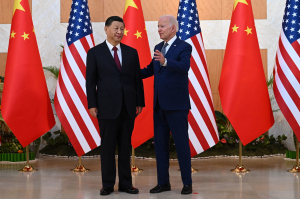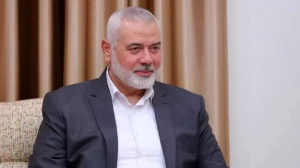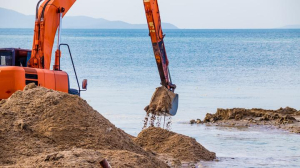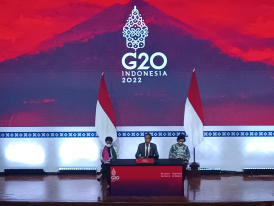Food crisis, pandemic and geopolitical tension are the G20 Summit focus
Leaders of the world's 20 strongest economies (G20) have expressed their concerns of the impact of the Russia vs Ukraine war, food security, energy crisis and finance to the developing nations.
Indonesian President Joko "Jokowi" Widodo said in his opening speech that the G20 leaders should take immediate measures to guarantee the availability of fertilizer with affordable prices or the world would face food crisis in 2023.
"The increasing food prices can turn into a crisis due to the absence of food supply. Various parts of the world are experiencing a fertilizer shortage, with 48 developing countries suffering from severe food shortages," he said during the opening of the G20 Summit in Nusa Dua, Bali, on November 15, 2022.
The Summit, Jokowi said, has attracted the world's attention. As the president of the G20, Indonesia has made every effort to bridge these significant and vast differences. Nevertheless, the Summit can only be successful if all participants, without exception, are committed to working hard and putting aside differences for something concrete, something useful.
Anticipating food and energy crises
Chinese President Xi Jinping said in a separate speech that food and energy security was the most pressing challenge in global development. The root cause of the ongoing crises is not production or demand, but interrupted supply chains and international cooperation.
He said all countries should coordinate with the UN and other multilateral international organizations, enhance cooperation on market supervision and regulation, build partnerships on commodities, develop an open, stable and sustainable commodities market, and work together to unclog supply chains and stabilize market prices.
According to Xi, G20 members must resolutely oppose the attempt to politicize food and energy issues or use them as tools and weapons. Unilateral sanctions must be removed while restrictions on relevant scientific and technological cooperation must be lifted.
In reducing the consumption of fossil fuel energy and transitioning toward clean energy, the world needs to give balanced consideration to various factors, and make sure that the transitional process does not hurt the economy or the people's livelihood.
Developing countries face more acute risks in food and energy security. The G20 should keep this in mind and provide necessary support in production, collection, storage, funding and technology. Since the UN has established the Global Crisis Response Group on Food, Energy and Finance, the G20 should voice its support for it.
Xi said that over the years, China has made a major contribution to global food and energy security. This year, China has proposed - together with six partners including Indonesia and Serbia - the Initiative of International Cooperation on Resilient and Stable Industrial and Supply Chains. China also joined other countries in calling for the establishment of the Global Clean Energy Cooperation Partnership, and put forward the International Cooperation Initiative on Global Food Security in the G20.
Handling ongoing pandemic
Jokowi expressed hope that the G20 could continue to catalyze inclusive economic recovery. In the middle of the difficult situation, the G20 has continued to work to produce concrete achievements, including setting up pandemic fund to fight the next pandemic, assisting low-income nations in improving their fiscal space through resilience and sustainability trust, encouraging the acceleration of SDGs achievements, producing hundreds of concrete cooperation and supporting a more sustainable global economic recovery through the Bali Compact on energy transition.
"We do not merely talk but also perform accurate measurements," he said.
Previously, Health Minister Budi Gunadi Sadikin said health and finance ministers of G20 have established the US$ 1.4 billion Global Pandemic Fund from 24 institutions. This is currently, the fifth largest fund that the World bank has ever created and is expected to increase into US$ 10 billion in the next decade.
Xi said all parties should continue to deepen international cooperation against COVID-19 pandemic, and raise the accessibility and affordability of vaccines, medicines and diagnostic and treatment methods in developing countries so as to create a sound environment for economic recovery.
Dialog to prevent Cold War
As a democratic country, Jokowi said Indonesia recognized the importance of a dialogue to bring differences together.
"No other option is available to us. The world urgently needs a paradigm of collaboration. Our responsibility extends not only to our people but also to people worldwide. Being responsible requires respecting international law and the principles of the UN Charter consistently. Taking responsibility involves creating win-win situations, not zero-sum ones," he added.
According to Jokowi, taking responsibility means ending the war. Without an end to the war, the world will be unable to move forward. "There should be no division of the world. We must prevent another cold war from happening," he concluded.
Already have an account? Sign In
-
Start reading
Freemium
-
Monthly Subscription
20% OFF$29.75
$37.19/MonthCancel anytime
This offer is open to all new subscribers!
Subscribe now -
Yearly Subscription
33% OFF$228.13
$340.5/YearCancel anytime
This offer is open to all new subscribers!
Subscribe now







